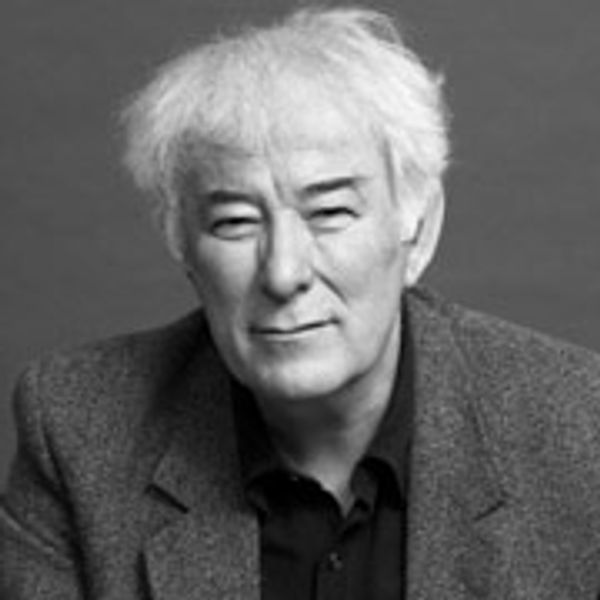Lia Purpura, Parasol Mushroom (detail), featured in AGNI 102
from Squarings
When you sat, far-eyed and cold, in the basalt throne
Of “the wishing chair” at Giant’s Causeway,
The small of your back made sense of the firmament.
Like a papoose at sap-time strapped to a maple-tree,
You gathered force out of the world-tree’s hardness.
If you stretched your hand forth, things might turn to stone.
But you were only goose-fleshed skin and bone,
The rocks and wonder of the world were only
Lava crystallized, salts of the earth
The wishing chair gave savour to, its kelp
And ozone sharpening your outlook
Beyond the range of possibility.
~
I was four but I turned four hundred maybe
Encountering the ancient dampish feel
Of a clay floor. Maybe four thousand even.
Anyhow, there it was. Milk poured for cats
In a rank puddle-place, splash-darkened mould
Around the terra cotta water-crock
Ground of being. Body’s deep obedience
To all its shifting tenses. A half-door
Opening directly into starlight.
Out of that earth house I inherited
A stack of singular, cold memory-weights
To load me, hand and foot, in the scale of things.
~
Sand-bed, they said. And gravel-bed. Before
I knew river shallows or river pleasures
I knew the ore of longing in those words.
The places I go back to have not failed
But will not last. Waist-deep in cow-parsley
I re-enter the swim, riding or quelling
The very currents memory is composed of,
Everything accumulated ever
As I took squarings from the tops of bridges
Or the banks of self at evening.
Lick of fear. Sweet transience. Flirt and splash.
Crumpled flow the sky-dipped willows trailed in.
~
Heather and kesh and turf stacks reappear
Summer by summer still, grasshoppers and all,
The same yet rarer: fields of the nearly blessed
Where gaunt ones in their shirt-sleeves stooped and dug
Or stood alone at dusk surveying bog-banks —
Apparitions now, yet active still
And territorial, still sure of their ground,
Still interested, not knowing how far
The country of the shades has been pushed back.
How long the lark has stopped outside these fields
And only seems unstoppable to them
Caught like a far hill in a freak of sunshine.
~
All gone into the world of light? Perhaps
As we read the line sheer forms do crowd
The starry vestibule. Otherwise
They do not. What lucency survives
Is blanched as worms on nightlines I would lift,
Ungratified if always well prepared
For the nothing there — which was only what had been there.
Although in fact it is more like a caught line snapping,
That moment of admission of All gone,
When the rod butt loses touch and the tip drools
And eddies swirl a dead leaf past in silence
Swifter (it seems) than the water’s passage.
~
For certain ones what was written may come true:
They shall live on in the distance
At the mouths of rivers.
For our ones, no. They will re-enter
Dryness that was heaven on earth to them,
Happy to eat the scones baked out of clay.
For some, perhaps, the delta’s reed beds
And cold bright-footed seabirds always wheeling.
For our ones, snuff
And hob-soot and the heat off ashes.
And a judge who comes between them and the sun
In a pillar of radiant house dust.
~

Seamus Heaney
Seamus Heaney (1939–2013) wrote some of the most revered poems of his time and published them in twelve collections, from 1966’s Death of a Naturalist to 2010’s Human Chain. He received the Nobel Prize for Literature in 1995. A former Boylston Professor of Rhetoric and Oratory at Harvard University, he lived in Dublin, Ireland, until his death in August 2013. His association with AGNI spanned three decades.
Heaney’s book of prose essays The Government of Tongue: The 1986 T. S. Eliot Memorial Essays was reviewed in AGNI 31/32 by Eamon Grennan.
Order AGNI’s limited-edition broadside of “Saw Music,” first published in AGNI 61 as part of the triptych “Out of This World” and later reprinted in his acclaimed collection District and Circle.
